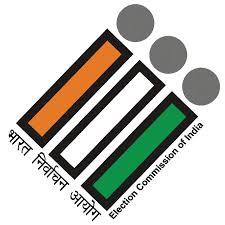Gender has nothing to do with ability but the stereotypical thought process of the Indian society has always discriminated on gender and when it comes on transgender the condition is worst. People think that transgender cannot do anything. We are citizens of India and voting is our right and that is the importance of elections for transgender people.
But braving all odds many transgender candidates have register themselves for election polls to gain the dignity and freedom to live as respectable human beings.
Aswathi Rajappan, who identifies as a Dalit intersex person and uses the pronoun ‘ze’ (instead of he or she), is one of a small group of transgender people fighting the Lok Sabha elections, these candidates come from across castes and regions – from Gujarat in the west and Tamil Nadu in the south to Odisha in the east and Uttar Pradesh in the north — and represent the rapid strides made by the marginalised community barely five years after the Supreme Court upheld their rights in a landmark judgment, known as Nalsa vs Union of India. Rajappan was stirred to join politics because of the high rates of crime against transgender people and a commitment to anti-caste principles. “Intersex people are always invisiblised , I want people to accept us as we are” says Rajappan, who is taking Congress’s Hibi Eden, Union minister KJ Alphons and CPI(M)’s P Rajeev.
Another such candidate is, Bhavani Nath Valmiki fighting her own electoral battle. Valmiki was nominated by the Aam Aadmi Party (AAP) from Prayagraj.
The north India head of the Kinnar Akhada, a Hindu monastic order of transpeople, Valmiki says she could have fought from a reserved seat but chose the high-profile constituency to show that a person tagged as “reserved” can fight in a so-called “general” seat. “I entered politics for social good and my poll pitch will be unemployment. We don’t fear terrorism but fear lack of jobs for the young.”
Valmiki, who is known as Bhavani Maa to legions of her followers in the Akhada, says the capability of a transperson will determine their outcome, not their gender. “A kinnar finds no job, no family support or a home. But we live. If we can fight hunger, we can fight elections.”
Talking about the history, Shabnam “mausi” (aunt) made history when she stepped into the Madhya Pradesh assembly in March 2000 as the first transgender MLA (from Sohagpur) in India. Just a year before her win, another transgender person – Kamala Jaan – was elected the mayor of Katni but her election was struck down, first by a tribunal, and then by the high court in 2003 on the ground that the position was reserved for a woman, and Jaan was not biologically one because she couldn’t bear children – this despite the Election Commission having recognised transgender voters in September 1994 (the watchdog allowed transpersons to vote under male or female categories) following a letter by Shabnam.
In the 2019 Lok Sabha elections, the number of “third gender” voters is 41,292, a rise of about 45% from 2014, when the EC first started the category. The highest number of “third gender” voters is in Uttar Pradesh (8,374), followed by Tamil Nadu (5,790) and Karnataka (4,839). In some states such as Tripura (14), Mizoram (6) and Nagaland (20), the numbers are extremely low.
Data from the EC shows turnout figures for transpeople in the first phase of polling stood at an abysmal 17.94%, as compared to an overall figure of 64.9%.
In this election, most mainstream parties have included them in manifestos. As a first, both the Congress and the BJP have made promised transgender welfare and parties such as the DMK, CPI-M (as well as Congress) have promised to roll back a controversial transgender rights bill.


